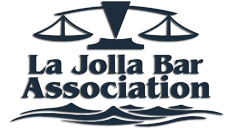Article: Board seeks public feedback on proposed MCLE changes

(Read article directly on State Bar of California’s website HERE)
By Laura Ernde
Staff Writer, CA. State Bar
The future of legal education in California could include a wider array of choices and better quality courses, along with an increase in the number of hours required.
After holding a series of public hearings this spring, a Board of Trustees committee is seeking public comment on several ideas to improve Minimum Continuing Legal Education (MCLE). Some of the options proposed by the Member Oversight Committee could take effect as soon as next year if approved by the full board in October. They include:
- Expanding the substance abuse education specialty requirement to include a broader “competence issues” requirement. Competence education would teach lawyers how to recognize and deal with any mental or physical issue — including dementia, mental illness or substance abuse — that could affect their ability to practice.
- Establishing a formal audit system for MCLE providers that would use volunteers to review courses and provide a process for attorneys to register complaints about providers.
- Requiring written materials for all MCLE activities, regardless of the length. Currently, materials are not required for programs that are one hour or less.
- Broaden the elimination of bias specialty requirement to include courses on how to recognize bias in society, not just the legal profession.
The committee, chaired by Trustee Loren Kieve, is also soliciting feedback on whether to increase the hours requirement from 25 to 36 every three years. However, that would take longer because the State Bar would have to seek legislative approval and a change to the Supreme Court rules.
California has one of the lowest MCLE hour requirements in the country. Only Alaska and Hawaii, which require three hours a year, are lower, the committee report said.
California’s MCLE program began in 1992 with a requirement of 36 hours every three years. The legislature reduced it to 25 in 2000.
Similarly, there’s a proposal to restore the required specialty credits in ethics to eight hours, up from the current four hours, and allow law practice management courses to qualify for ethics credit. The change would “re-establish the importance of law practice management education in maintaining a lawyer’s professional responsibilities and minimizing malpractice risks,” the report said.
“The work of your committee has been groundbreaking and well overdue,” State Bar President Patrick M. Kelly told Kieve. “I look forward to seeing the public comment.”
In other action, the board:
- Directed further study of the causes, effects and possible solutions to California’s access to justice challenges, including but not limited to the concept of creating a limited license to practice law. The resolution was in response to the findings of the Limited License Working Group.
- Endorsed an initiative to amend the attorney oath in California to include a commitment to professional civility.
- Sent a proposed change in admission requirements that would improve the practical skills of new lawyers out for public comment.
